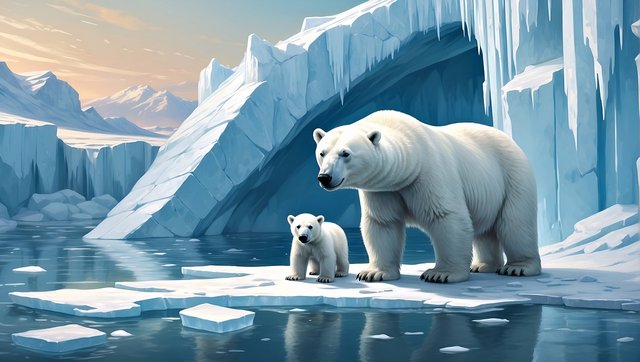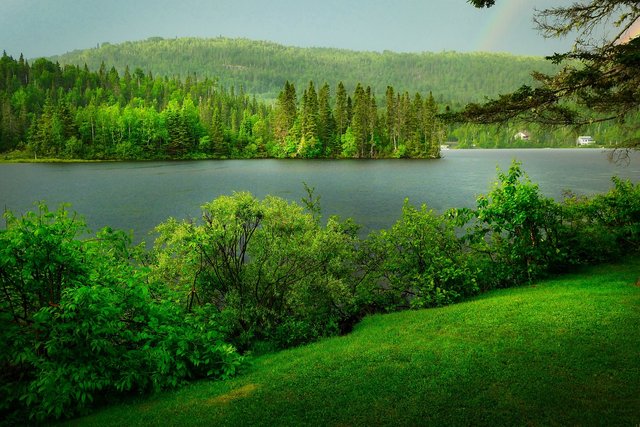Is Climate Change a Real Threat, or Is It Overhyped?
Imagine witnessing the last male northern white rhinoceros taking its final breath, not from poaching, but because its habitat became uninhabitable due to climate change. This isn't a hypothetical scenario – it's the kind of reality our planet faces as global temperatures continue to rise. The debate over whether climate change poses a real threat or is merely overhyped has evolved from scientific discussions to one of the most pressing issues of our time.
The Science Behind Climate Change: Understanding the Basics
The Greenhouse Effect and Global Warming
At its core, climate change stems from a simple but powerful mechanism. When sunlight reaches Earth, some energy reflects into space, while some remains trapped by greenhouse gases, warming our planet. This natural process has kept Earth habitable for millions of years. However, human activities since the Industrial Revolution have dramatically increased greenhouse gas concentrations, intensifying this effect.
Key Statistics That Define Our Climate Crisis
Recent climate change reports reveal alarming trends:
• Carbon dioxide levels have increased by 48% since pre-industrial times
• The planet has warmed by approximately 1.1°C in the same period
• 2023 was the hottest year on record
• Ocean temperatures have reached unprecedented highs
• Arctic sea ice is declining at a rate of 13% per decade
10 Effects of Global Warming: A Deeper Look
Rising Seas and Coastal Flooding
The threat of sea level rise isn't a future concern – it's happening now. By 2100, global sea levels could rise by up to one meter, threatening:
• 800 million people living in coastal areas
• Major metropolitan cities like New York, Shanghai, and London
• Island nations facing complete submersion
• Critical infrastructure worth trillions of dollarsExtreme Weather Events
Climate change acts as a "threat multiplier," making weather events more severe:
• Hurricanes draw more energy from warmer oceans
• Heat waves last longer and occur more frequently
• Rainfall patterns become more erratic
• Drought conditions intensify in vulnerable regionsBiodiversity Loss
The climate crisis is accelerating what scientists call the "sixth mass extinction":
• One million species face extinction risk
• Ecosystems are transforming faster than species can adapt
• Coral reefs could disappear by 2050
• Arctic species lose vital sea ice habitatAgricultural Disruption
Global food security faces unprecedented challenges:
• Crop yields could decrease by up to 25% by 2050
• Traditional growing regions become unsuitable for certain crops
• New pests and diseases emerge in previously unaffected areas
• Soil degradation accelerates due to extreme weatherWater Crisis
Climate change severely impacts global water resources:
• Two-thirds of the world's glaciers could disappear by 2100
• Water scarcity could affect 5 billion people by 2050
• Groundwater depletion accelerates in drought-prone regions
• Water conflicts become more likely between nationsHealth Implications
The effects of global warming on human health are extensive:
• Heat-related deaths increase globally
• Vector-borne diseases spread to new regions
• Air quality deteriorates in urban areas
• Mental health impacts from climate anxiety and displacementEconomic Impact
The financial consequences of climate change are staggering:
• Global GDP could decrease by 10% by 2050
• Insurance losses from natural disasters break records annually
• Climate refugees could number 1 billion by 2050
• Infrastructure damage costs trillions in repairsArctic Transformation
The Arctic region serves as an early warning system:
• Permafrost thaw releases additional greenhouse gases
• Indigenous communities lose traditional ways of life
• New shipping routes open, creating geopolitical tensions
• Ecosystem collapse threatens global weather patternsOcean Systems Disruption
Our oceans face multiple challenges:
• Acidification threatens marine food webs
• Fish populations migrate to cooler waters
• Coral bleaching events become more frequent
• Ocean currents show signs of destabilizationSocial and Political Consequences
Climate change amplifies existing social issues:
• Resource conflicts increase
• Climate refugees strain international relations
• Environmental justice concerns grow
• Political polarization over climate action intensifies
The Role of Climate Change Organizations
International Bodies
Major organizations leading the fight against climate change:
1. United Nations Framework Convention on Climate Change (UNFCCC)
◦ Coordinates international climate action
◦ Organizes annual COP meetings
◦ Monitors national commitments
2. Intergovernmental Panel on Climate Change (IPCC)
◦ Provides scientific assessments
◦ Informs policy decisions
◦ Projects future scenarios
3. Green Climate Fund
◦ Finances adaptation projects
◦ Supports developing nations
◦ Promotes technology transfer
Non-Governmental Organizations
NGOs play crucial roles in:
• Public awareness campaigns
• Local project implementation
• Policy advocacy
• Scientific research
• Community engagement
Addressing Climate Change Skepticism
Common Myths Debunked
1. "It's just natural variation"
◦ Current changes exceed natural cycles
◦ Rate of warming is unprecedented
◦ Natural factors alone cannot explain observed changes
2. "Scientists disagree"
◦ 97% consensus among climate scientists
◦ Major scientific organizations worldwide confirm human-caused climate change
◦ Disagreements mainly about specific impacts and timelines
3. "It's too expensive to fix"
◦ Cost of inaction exceeds prevention
◦ Green technologies become increasingly affordable
◦ Climate action creates economic opportunities
Solutions and Path Forward
Individual Actions
Everyone can contribute through:
1. Sustainable Lifestyle Choices
◦ Renewable energy adoption
◦ Reduced meat consumption
◦ Efficient transportation
◦ Waste reduction
2. Consumer Decisions
◦ Support eco-friendly businesses
◦ Choose sustainable products
◦ Reduce single-use plastics
◦ Invest responsibly
Collective Actions
Broader initiatives include:
1. Policy Changes
◦ Carbon pricing
◦ Renewable energy incentives
◦ Building efficiency standards
◦ Transportation electrification
2. Business Transformation
◦ Corporate sustainability goals
◦ Clean energy transition
◦ Circular economy adoption
◦ Supply chain optimization
The Future Outlook
Best-Case Scenario
If we act decisively:
• Limited warming to 1.5°C
• Successful adaptation strategies
• Technological breakthroughs
• Strengthened international cooperation
Worst-Case Scenario
Without significant action:
• Catastrophic warming beyond 3°C
• Irreversible tipping points
• Mass displacement
• Ecosystem collapse
Conclusion
The evidence overwhelmingly shows that climate change is not only real but represents one of the most significant threats to human civilization. The question isn't whether it's overhyped, but rather how quickly we can mobilize to address it. While the challenges are immense, solutions exist and are becoming more viable each year. Our actions today will determine the world our children inherit tomorrow.
126 Forgotten Survival Foods That You Should Add to Your Stockpile --> https://bit.ly/forgotten-survival-foods
Write your opinion about this question in the comments section!
Resources and References for Climate Change Article
Scientific Organizations and Research Institutions
Primary Data Sources
1. Intergovernmental Panel on Climate Change (IPCC)
◦ Sixth Assessment Report (AR6, 2021-2022)
◦ Special Report on Global Warming of 1.5°C Website: www.ipcc.ch
2. NASA Global Climate Change
◦ Vital Signs of the Planet
◦ Climate Time Machine
◦ Global Temperature Data Website: climate.nasa.gov
3. National Oceanic and Atmospheric Administration (NOAA)
◦ Climate.gov
◦ Global Climate Report
◦ State of the Climate Website: www.climate.gov
4. World Meteorological Organization (WMO)
◦ State of the Global Climate Reports
◦ Greenhouse Gas Bulletin Website: public.wmo.int
Academic Institutions
5. MIT Climate Portal
◦ Climate Science
◦ Energy Systems
◦ Solution Briefs Website: climate.mit.edu
6. Berkeley Earth
◦ Temperature Data
◦ Climate Analysis Website: berkeleyearth.org
Environmental Organizations
7. Environmental Defense Fund
◦ Climate Innovation
◦ Solutions Analysis Website: www.edf.org
8. World Resources Institute
◦ Climate Watch Platform
◦ Global Forest Watch Website: www.wri.org
9. Climate Action Tracker
◦ Country Assessments
◦ Global Progress Reports Website: climateactiontracker.org
The Edison Generator!
Meet the Innovative Device Inspired by a Legendary Inventor's Vision --> https://bit.ly/the-lost-generator
International Bodies and Reports
10. United Nations Environment Programme (UNEP)
◦ Emissions Gap Report
◦ Adaptation Gap Report Website: www.unep.org
11. International Energy Agency (IEA)
◦ World Energy Outlook
◦ Net Zero by 2050 Report Website: www.iea.org
Key Scientific Papers
Peer-Reviewed Research
◦ "Attribution of extreme weather events in the context of climate change" - National Academy of Sciences
◦ "Climate change and the global pattern of moraine-dammed glacial lake outburst floods" - The Cryosphere
◦ "Trajectories of the Earth System in the Anthropocene" - Proceedings of the National Academy of Sciences
Economic AnalysisWorld Bank Climate Change Knowledge Portal
◦ Climate Data
◦ Economic Impact Analysis Website: climateknowledgeportal.worldbank.orgInternational Monetary Fund
◦ Climate Change Reports
◦ Economic Implications Studies Website: www.imf.org/climate
Statistical Data Sources
15. Global Carbon Project
◦ Carbon Budget
◦ Emissions Data Website: www.globalcarbonproject.org
16. Climate Central
◦ Sea Level Rise Data
◦ Temperature Analysis Website: www.climatecentral.org
Additional Resources
Books
17. Key Publications
◦ "The Physics of Climate Change" by Lawrence M. Krauss
◦ "All We Can Save" edited by Ayana Elizabeth Johnson and Katharine K. Wilkinson
◦ "How to Avoid a Climate Disaster" by Bill Gates
Multimedia Resources
18. Documentaries and Visual Resources
◦ "Chasing Coral" (Netflix)
◦ "Before the Flood" (National Geographic)
◦ "Breaking Boundaries: The Science of Our Planet" (Netflix)
Educational Resources
19. Climate Literacy Materials
◦ NASA Climate Kids
◦ CLEAN Network (Climate Literacy and Energy Awareness Network)
◦ National Geographic Education
Tools and Interactive Resources
20. Climate Visualization Tools
◦ Climate Interactive Simulators
◦ En-ROADS Climate Solutions Simulator
◦ NASA's Eyes on the Earth
Note on Citations
All statistics and data points used in the article are derived from these authoritative sources. For the most current information, readers should consult these primary sources directly, as climate science and data are continuously updated.
Don't miss it: 126 Forgotten Survival Foods, That You Should Add to Your Stockpile --> https://bit.ly/forgotten-survival-foods



